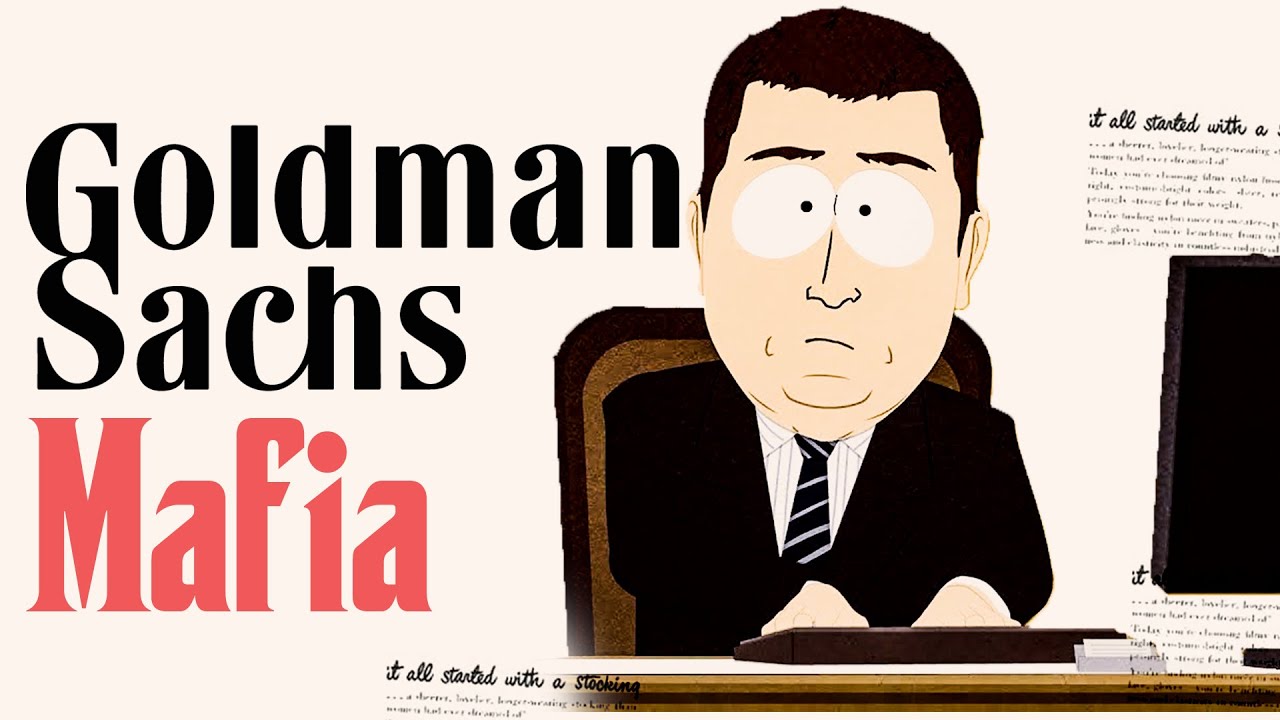Goldman Sachs: The Most Evil Bankers In The World
Unleash Your Creative Genius with MuseMind: Your AI-Powered Content Creation Copilot. Try now! 🚀
In the world of finance and politics, certain names have the power to raise eyebrows and provoke curiosity. Among these names, the "Goldman Sachs mafia" is a term that has gained prominence over the years. The phrase alludes to a web of influence, where former Goldman Sachs employees have held pivotal positions globally. This essay explores the intriguing realm of the "Goldman Sachs mafia" and its far-reaching impact on the financial and political landscape.
The Puppet Masters of Finance
Henry Paulsen, a name that resonates in the realm of finance, served as the United States Secretary of the Treasury during the tumultuous 2008 financial crisis. But his journey to the top was not a solitary one. He was part of the Goldman Sachs alumni, a network known for wielding immense power.
This raises a fundamental question: How influential are former Goldman Sachs employees on the world stage? The answer is in the extensive connections and impact they bring to the table. Robert Rubin, Steve Mnuchin, Robert Zoellick, and many others have walked the corridors of power after donning the Goldman Sachs badge.
The Art of Financial Alchemy
The annals of financial history reveal a time when large corporations like FW Woolworth and Continental Can were going public, and providing IPO underwriting services was a goldmine. This era witnessed the birth of financial alchemy, where appearances often deceived. The Great Depression of 1929 serves as a prime example.
During this period, investment trusts were all the rage, and Goldman Sachs seized the opportunity by creating the Goldman Sachs Trading Corporation. This move essentially underwrote its shares, thus profiting from a clever scheme. The real magic, however, lay in their ability to repeat this process with other trusts, forming a formidable investment pyramid scheme.
The consequences of this financial manipulation were colossal. The 1929 stock market crash not only resulted in substantial losses for Goldman Sachs but also obliterated their competition. This left them unchallenged, reigning supreme for decades.
The Dot-Com Bubble and Its Architects
Fast forward to the 1990s, and Goldman Sachs had solidified its position as a major player in the world of underwriting, bolstered by lax regulations. This era marked the rise of dot-com startups, many of which had little substance but were taken public through IPOs, contributing to the infamous dot-com bubble.
Goldman Sachs was at the forefront of this frenzy, reaping substantial profits. When the bubble finally burst, it was not without consequences, but the penalties faced by the institution were relatively minor compared to the gains amassed.
The Mortgage Meltdown and Profits Galore
The early 2000s saw yet another financial landscape shift. Mortgage standards were relaxed, enabling more people to become homeowners. Investment banks bundled these mortgages into mortgage-backed securities, while insurance, in the form of credit default swaps, was used to mitigate risk.
One of the key figures facilitating this financial innovation was Robert Rubin. His influence extended to shaping favorable legislation that paved the way for these practices. When the housing bubble eventually burst, Goldman Sachs once again found itself on the winning side, profiting significantly from the turmoil.
In conclusion, the influence of the "Goldman Sachs mafia" in the global financial and political sphere is a compelling narrative. Their ability to navigate and thrive in turbulent financial waters is both fascinating and concerning. As we reflect on these historical events and individuals, we are reminded that the intersection of finance and power is a complex and intricate web, often shaped by creative and sometimes, morally ambiguous actions. The "Goldman Sachs mafia" continues to be a subject of fascination and a testament to the ever-evolving dynamics of influence in our world.

Related Recaps
- @NTV "40 liranın altındaki lahmacun şüpheli"
- ¿POR QUÉ LAS MUJERES PIERDEN EL RESPETO? - LIVE - Martes de Modo Guerra
- 10 giờ(50 phút) tối mỗi .. ngày
- Sabor a Mi con BOLERO SOUL #bolero #lospanchos #luismiguel
- When it comes to CONFLICT, we must handle it the BIBLICAL way. 🤝✅#God #bible #jesuschrist #church